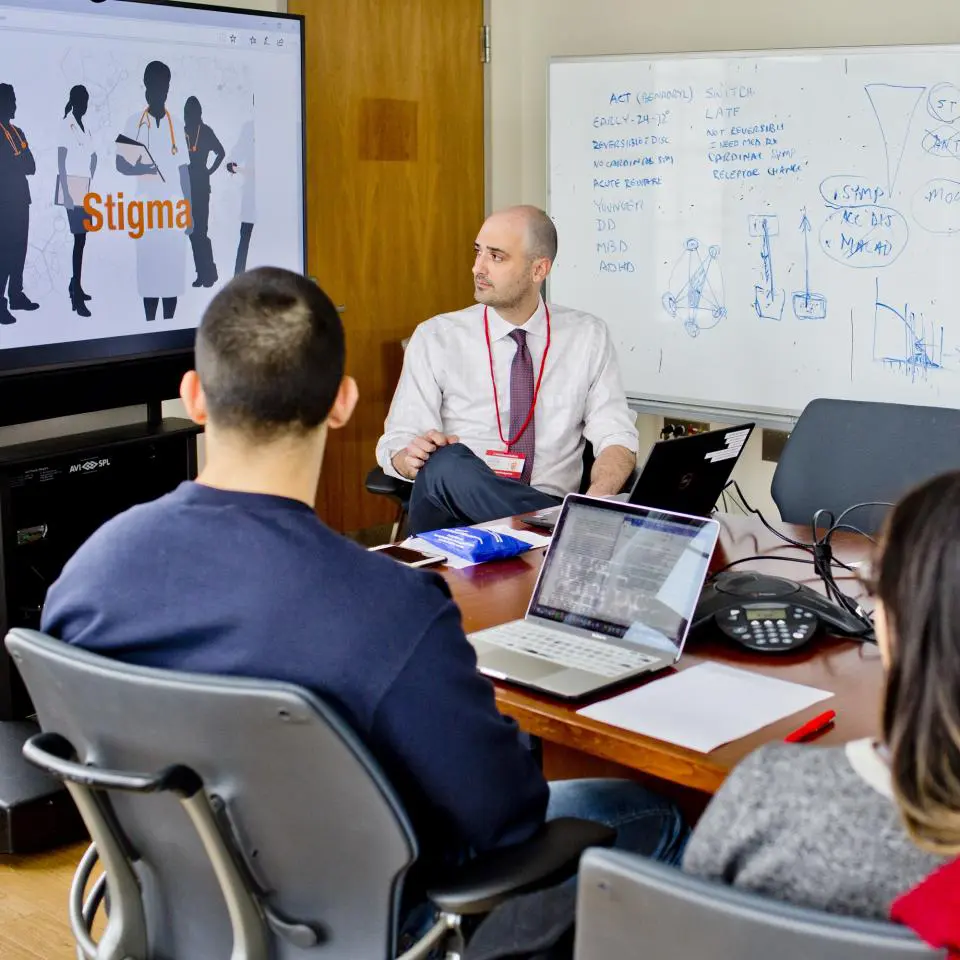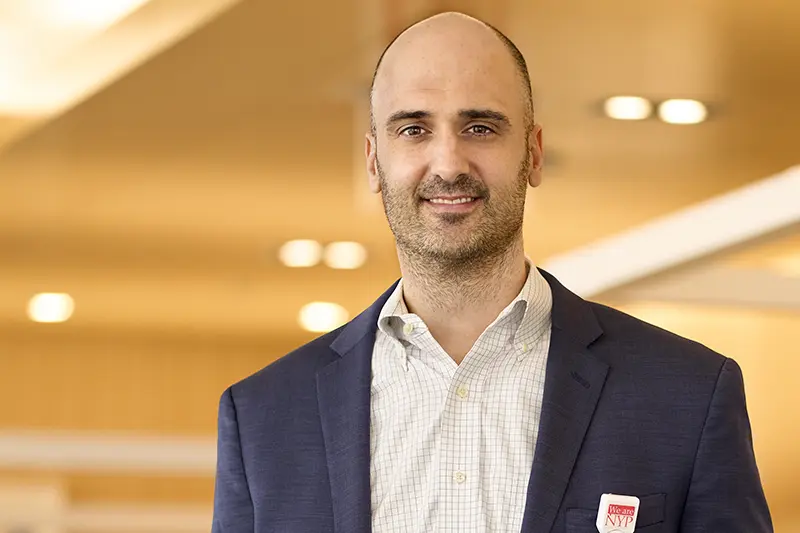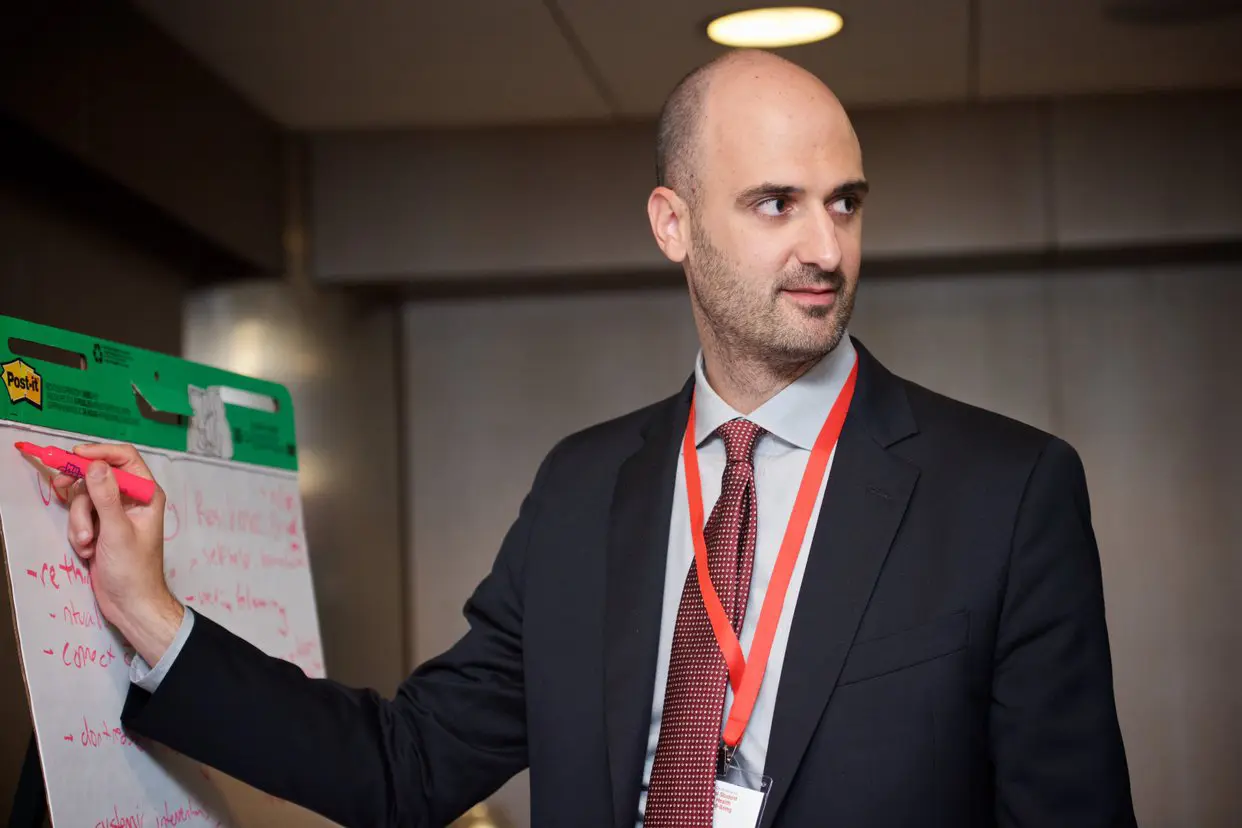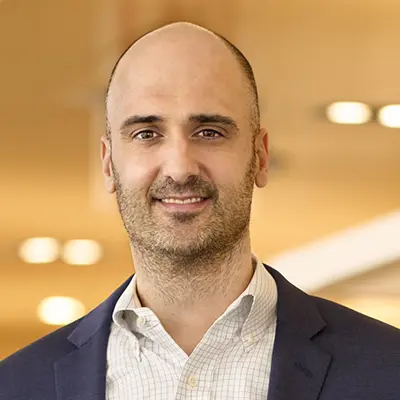Dr. Jonathan Avery is on a mission: Remove the stigma surrounding addiction so that it’s recognized for what it is — a brain disease that requires medical treatment, not a personal moral failure.
“My biggest message when I speak to anyone about addiction is that we need to start talking about it everywhere, all the time,” says Dr. Avery, Vice Chair of Addiction Psychiatry and Program Director of the Addiction Psychiatry Fellowship at NewYork-Presbyterian/Weill Cornell Medicine. “Substance use disorders should be part of the general conversation because everyone is at risk for them. And when it does happen to someone, they need to know that it’s not their fault and that there are options to help them get better.”
The medical community is not immune to the stigma. That’s why physician education and training is a major focus of the Program for Substance Use and Stigma of Addiction, which Dr. Avery founded in 2019. “There are a lot of misconceptions about substance use patients that color our narratives,” he says. “We sometimes lose sight of the fact that there are more people in recovery in the United States than those with active substance use, so there are a lot of wins to be had if you can get past the stigma and see each patient as an individual.”
Dr. Avery spoke with NYP Advances to discuss why erasing the stigma is so key to combatting addiction and how he’s working to change the attitudes of health care providers.
When did you know that you wanted to pursue psychiatry as a field, and addiction psychiatry as a specialty?
My father was a hospice physician and worked closely with psychiatrists as he helped care for people at the end of their lives. When I was young, I volunteered at hospice organizations and got to film patients telling their stories, which helped give them a voice and was therapeutic for them, their families, and their caretakers. Giving people a way to let their voices be heard is what interested me in psychiatry early on.
Later when I was in medical school, I became interested in addiction psychiatry specifically because, like with the hospice patients, these are patients who often aren’t given the space to tell their stories. There is a stigma attached to their experiences and illnesses. People discouraged me from getting into addiction psychiatry because it was a challenging field; they said that there weren’t a lot of resources available and that I would experience a lot of disappointment. But being told not to do it made me want to pursue it even further.
When you founded the Program for Substance Use and Stigma of Addiction, what were your goals for it, and how are you working to achieve them?
First, we want to understand the different variables that contribute to such a profound stigma, even in the places where patients should feel the safest, like in their homes, within the judicial system, and with their medical providers. Substance use co-occurs often with psychiatric disorders, and a lot of substance use develops as self-medication for unaddressed psychiatric or psychological conditions. So, we need to understand addiction as a brain disease and recognize it as a condition where, with good treatments, people do get better.








